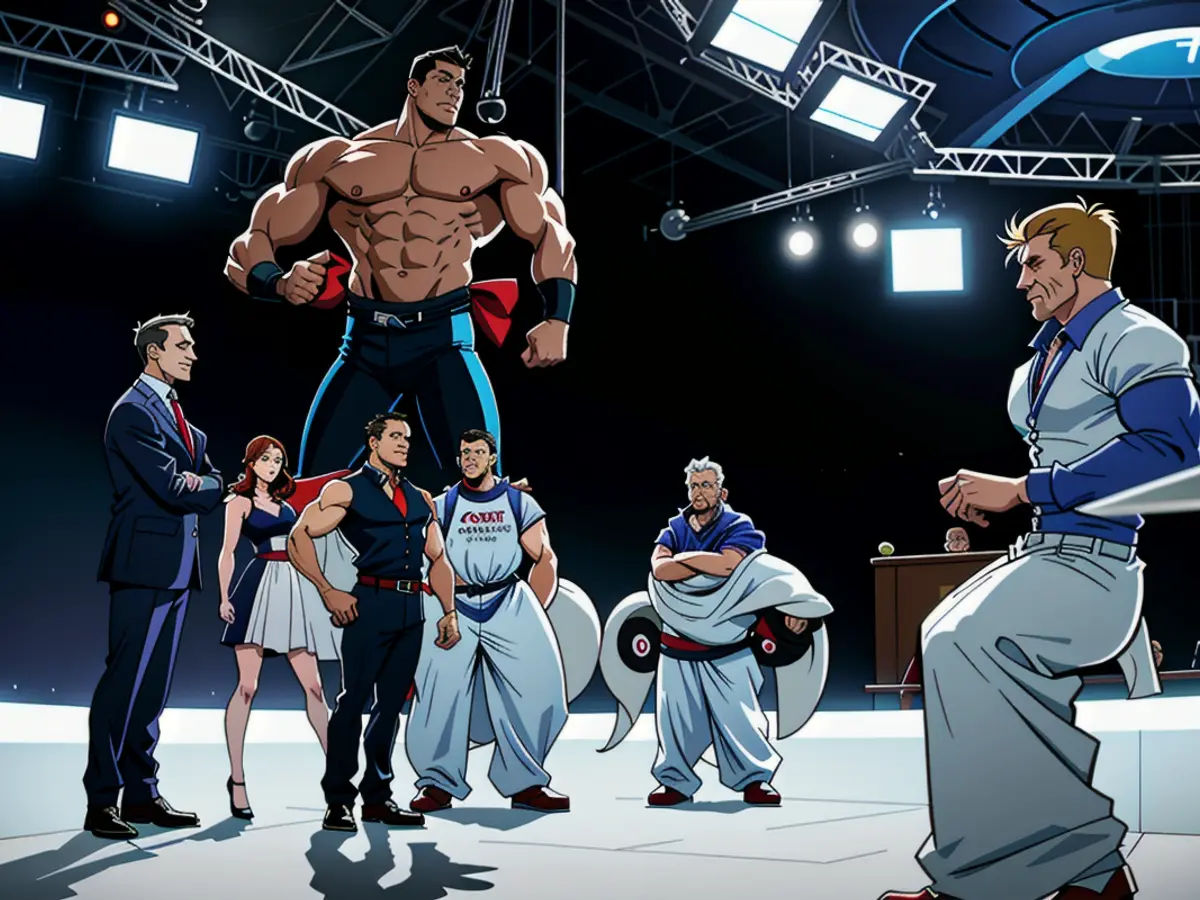Canadians search for alternative defense options amid Trump-induced outrage and apprehension within country borders
Fast-Paced, High-Stakes Canadian Election
Voters may need a rear-view mirror to catch up with Canada's lightning-fast election campaign. Running just five measly weeks, the race has kept a steady pace, leaving little room for dramatic twists and turns. However, Canadians haven't tuned out – early ratings indicate they've been glued to the debates, watching as national leaders hashed it out, including Prime Minister Mark Carney and his main rival, Pierre Poilievre.
Two men not present on stage were nonetheless front and center, as they have been throughout the campaign: US President Donald Trump and former Canadian Prime Minister Justin Trudeau.
Trump has provided a convenient foil for Carney, a political novice who took office mere weeks ago. Carney brought up Trump and his threats early and often during the debates.
"We can give ourselves far more than Donald Trump can ever take away," Carney stated within minutes, setting the tone for the two-hour face-off between the leaders of four major parties, including Bloc Québécois leader Yves-François Blanchet and leader of the New Democratic Party Jagmeet Singh.
Later on, when asked to elaborate on his leadership style in a crisis, Carney didn't miss the opportunity to reference Trump.
"In a crisis, you got to plan for the worst, the worst is that the US actually does want to take us over," Carney said, referring to Trump's threats to annex Canada and make it America's 51st state.
To drive the point home, Carney's closing statement was ominous and focused on the US threat. "They want our land, they want our resources, they want our water, they want our country. And we're all going to stand up against Donald Trump. I'm ready," he declared.
Poilievre didn't shy away from mentioning Trudeau, his predecessor and Liberal Party leader. He attacked Carney, running as much against Trudeau's record as Carney's short tenure.
"How can we possibly believe that you are any different than the previous ten years of Liberal government?" Poilievre asked, challenging Carney. "Are you prepared to elect the same Liberal MPs, the same Liberal ministers, the same Liberal staffers, all over again for a fourth term?" he questioned voters.
"Mr. Carney, Justin Trudeau's staffers are actually here with you at this debate, in Montreal, writing the talking points that you're regurgitating into the microphone," Poilievre pointed out, to which Carney retorted, "I do my own talking points, thank you very much."
Carney emphasized that "The biggest risk we have to affordability, the biggest risk we have to this economy is Donald Trump, so first and foremost we've got to get that right." It remains to be seen if this approach will win over voters, as some polls indicate a softness in Carney's support, particularly among those seeking change in this election. Poilievre has a small window of time to change readers' minds before the April 28 vote.
Unexpected Rise to Power
While the debates may have lacked excitement, Carney's journey to the top of Canadian politics has been far from dull. The former central banker in both Canada and the United Kingdom had never stepped foot in a political contest before he took the reins from Trudeau earlier this year.
From that moment on, as Trump threatened to break Canada economically and make it his 51st state, Carney's rise in the polls was unprecedented.
"I've never seen polls move like this in my 25 years of polling, I mean it's incredible," said Andrew Enns, a long-time pollster. In mid-January, Trudeau's Liberal Party trailed Poilievre's Conservatives by 24 percentage points. Within weeks of Carney becoming Liberal Party leader and then prime minister, the polls flipped, and he would lead Poilievre by 7 points, according to polling by Leger.
Though some polls show a narrowing of Carney's lead, Poilievre has little time left to sway voters and prove that he is the best candidate to defend Canada from Trump's threats.
- The upcoming election in Canada, running for just five weeks, has kept a steady pace, leaving little room for dramatic twists and turns in the world of politics and general news.
- During the debates, national leaders, including Prime Minister Mark Carney and Pierre Poilievre, have attracted the attention of Canadians, with early ratings suggesting they've been glued to the discussions.
- Two figures front and center throughout the campaign are US President Donald Trump and former Canadian Prime Minister Justin Trudeau, who have influenced the election narrative, particularly in the context of war-and-conflicts policy and legislation.
- Prime Minister Carney has used Trump as a convenient foil, highlighting the threats posed by the US President to emphasize his readiness to lead and protect Canada against foreign threats.
- In the race for the prime ministership, candidates have not shied away from mentioning their contemporaries, with Poilievre running against Trudeau's record and Carney's short tenure in office.
- As the April 28 vote approaches, Poilievre has a small window of time to sway undecided voters and prove that he is the best candidate, ready to defend Canada from external threats and implement effective policy and legislation for the betterment of the Americas and the world at large in the realm of crime and justice.








